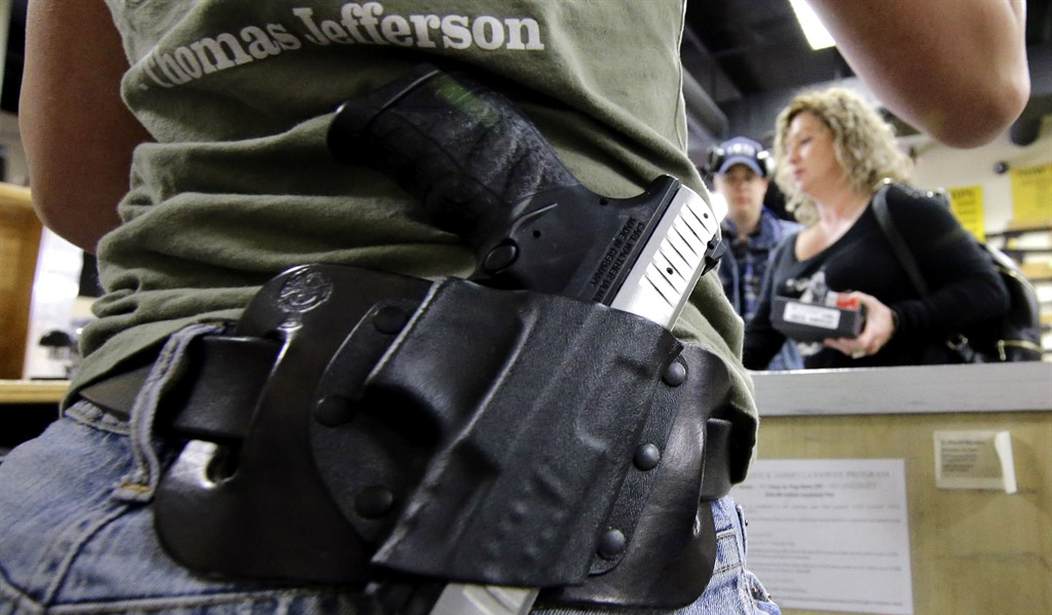My doctors have always taken whatever opportunity they have to talk to me about my health. After all, they get money from either me or my insurance to do just that. When you're talking about a handful of minutes to do so, I'm pretty sure it's just billed as a standard visit. There's no special code for "talked to patient about losing weight to reduce risk of diabetes" or whatever.
And yet, there's been a push to use Medicaid money for something not unlike what I mentioned above.
Now, our tax dollars are few and far between, at least the way the federal government spends them, and we're heavily in debt as a nation, so we need to be careful of what we spend money on.
With the makeup of Congress changing in January, Republicans can do a little something about it, and they're trying to.
Republican-led effort is underway to stop federal Medicaid funds from being used to support gun violence prevention programs.
The push comes as several states have begun utilizing Medicaid to finance community-based violence intervention programs. These efforts gained traction after the Biden administration issued executive orders enabling Medicaid to cover services like firearm safety counseling.
While proponents argue that these measures address the root causes of gun violence, critics see them as a misuse of taxpayer dollars to promote a gun control agenda.
Representative Andrew Clyde of Georgia, a Republican, introduced the Medicaid Funds Integrity Act on December 5, which aims to prohibit the use of Medicaid dollars for these programs. "Americans' hard-earned tax dollars have no place furthering the Left's unconstitutional gun control agenda," Clyde said in a press release from his office.
...
In contrast, advocates for violence prevention programs argue that the legislation is based on a misunderstanding of what these programs aim to achieve. Kyle Fischer, policy and advocacy director for The Health Alliance for Violence Intervention, told Newsweek that these initiatives are not about restricting Second Amendment rights.
"Violence intervention programs are person-focused and evidence-based. They target individuals who are at the highest risk of either being injured or injuring others," Fischer said. He noted that these programs "do not involve any changes to Second Amendment rights," and instead focus on practical methods to reduce community violence.
"Medicaid is reliable. If you're doing the work, you get reimbursed," Fischer added.
There's a problem with Fischer's arguments, though.
First, the term "evidence-based" is problematic because we've found way too many examples of heavily biased studies being used uncritically as evidence in evidence-based approaches. Without an examination of the evidence in question, it's impossible for me to assume it's really evidence.
Second, claiming these programs "do not involve any changes to Second Amendment rights" would be a lot easier to swallow if I actually believed it would stay that way.
But let's assume, for the sake of argument, that these concerns are unnecessary. Let's say, for the sake of argument, that no one has any interest in pushing gun control, only to address violence by preventing retaliatory violence or things of that sort.
Why do we need special measures to get people the counseling they need? If someone is traumatized enough to go out and kill, even potentially, that seems like a legitimate medical need that can be addressed under existing policies.
Of course, this is just a bill, which means we'll get debate over it if it ever leaves committee, and then some of these questions can be answered.
As it is, I'm not crazy on trusting the government to spend money on anything they remotely equate to "gun violence" no matter how much they say it's not about gun control.








Join the conversation as a VIP Member